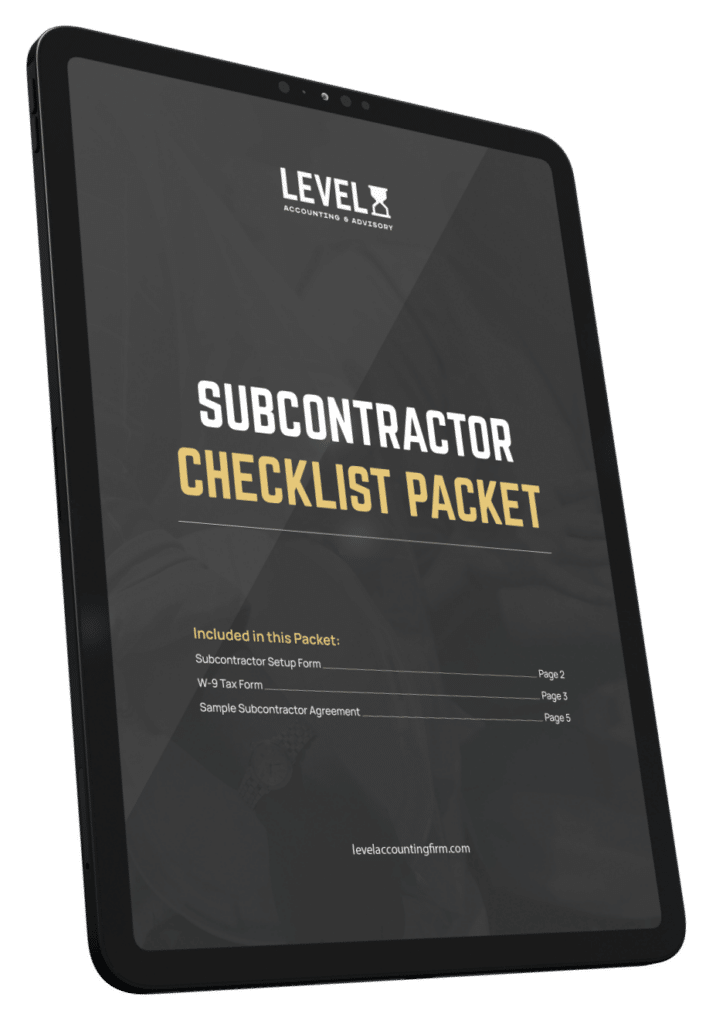Well-managed accounting is an essential component of any successful business, and construction companies are no exception. Proper accounting helps construction business owners to manage their finances effectively and make informed business decisions.
In the sections below, we’ll cover the basic accounting concepts that every construction business owner should be familiar with, including types of accounting, accounting methods, financial statements, and more.
Types of Accounting for Construction Companies
The accounting field is often described as consisting of 12 different branches. Of those, the four types of accounting described below are most relevant for construction companies.
Financial Accounting
Financial accounting is a broad category that involves the preparation of financial statements and reports. These documents are prepared to be presented to external users, such as investors or lenders.
Managerial Accounting
While financial accounting is externally focused, managerial accounting is internal. This type of accounting involves analyzing and sharing financial information among a company’s managers and decision-makers.
Tax Accounting
The most commonly-used accounting service is tax accounting. This type of accounting is concerned with helping companies and individuals comply with Internal Revenue Service (IRS) requirements. Tax accountants help clients prepare and file tax returns and related forms. Tax accountants help construction firms to maximize their deductions, file taxes on time, and avoid IRS complications.
Cost Accounting
Cost accounting consists of identifying, analyzing, and reporting on a business’s costs. These include overhead costs, labor costs, and materials costs.
Setting Up an Accounting System for a Construction Company
Ready to set up an accounting system for your construction company? To get started, your accountant can help you navigate the following steps.
Select an Accounting Method
The two most common methods for tracking expenses and revenue are cash-basis accounting and accrual-basis accounting.
The cash-basis method recognizes revenue and expenses when cash is received or paid out. Conversely, the accrual basis method recognizes revenue at the moment it’s earned and recognizes expenses at the moment they’re incurred.
Accrual-basis accounting is generally considered the most useful option for construction companies. This method provides a more accurate and up-to-date picture of a company’s financial performance.
Choose an Accounting Software System
Small business owners use accounting software to keep track of financial transactions. Accounting software ranges from simple spreadsheet tools to sophisticated programs that can prepare reports and analyses. Your accountant can help you choose a system based on your budget and needs.
Set Up a Chart of Accounts
One of the most important organizational tools for accounting is a chart of accounts. This is a list of all the accounts that your business uses for recording transactions. A chart of accounts typically includes these five groupings:
- Assets
- Revenue
- Equity
- Expenses
- Liabilities
Develop an Accounting Manual
Another essential accounting tool is an accounting manual that outlines your company’s procedures for recording transactions and preparing financial reports. The manual should designate responsibilities for accounting tasks and include instructions for generating financial reports and recording transactions into your accounting software system.
Understanding Financial Statements
As a business owner, there are four main types of financial statements that you should be familiar with. These are:
- Balance Sheet – includes information about assets, liabilities, and equity; what your company owns and owes
- Income Statement – describes revenues and expenses
- Cash Flow Statement – measures your company’s inflow and outflow of cash
- Retained Earnings Statement – shows how much funding the company has reinvested in the business
These four categories are closely related, but distinct. Each one presents a different set of data, with the full set of statements painting a complete picture of a company’s financial health.
Accounting Considerations for Construction Companies
Finally, there are a few additional accounting concepts that construction company owners should understand. These include:
- Job Costing – tracking and allocating costs to specific construction projects. This process helps to show how profitable a project is.
- Percentage of Completion Method – this method analyzes how much revenue has been earned on a period-by-period basis, based on a project’s percentage of completion. This is a useful method for making sure that long-term projects are consistently profitable for a company.
- Revenue Recognition – the principle that revenues should be acknowledged in financial statements when they’re earned, not necessarily when the payment is processed.
- Change Orders – a procedure for formally recognizing changes to a project’s scope, price, or completion date.
- Equipment Depreciation – recognizing the value of a piece of equipment based on its acquisition costs, lifespan, and maintenance expenses.
Get Better Accounting for Your Construction Business
Is your construction or trade business ready for professional accounting? Stratlign can help.
We’re a full-service accounting firm for small and medium-sized companies in the trade and construction industries. We work with general contractors, plumbers, landscape contractors, and many more talented and hardworking business owners.
To learn more, book a 15-minute call with Stratlign today.


